将第三方库PubSubClient下载到lib文件夹
一、阿里云IOT使用
1、打开阿里云IOT官网,登录阿里云账号
https://iot.console.aliyun.com
2、创建实例

3、新建产品

4、自定义主题
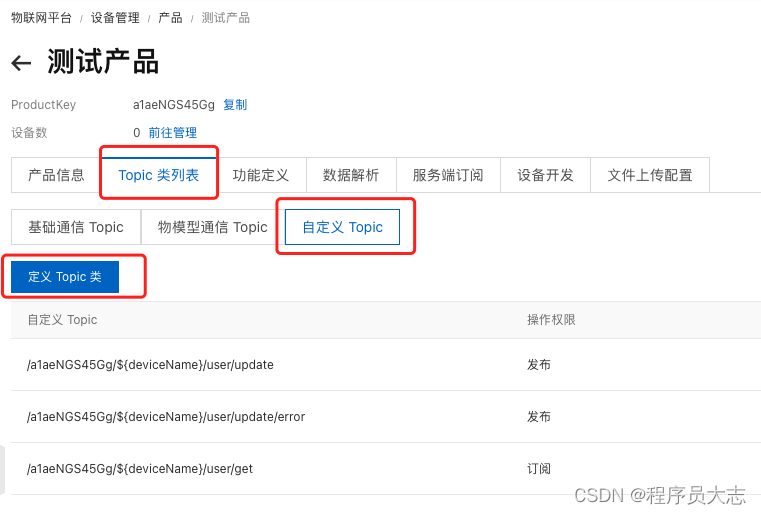
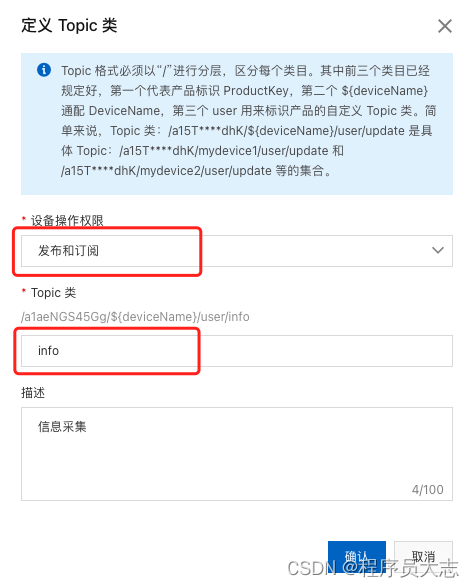
5、添加设备

6、查看设备配置
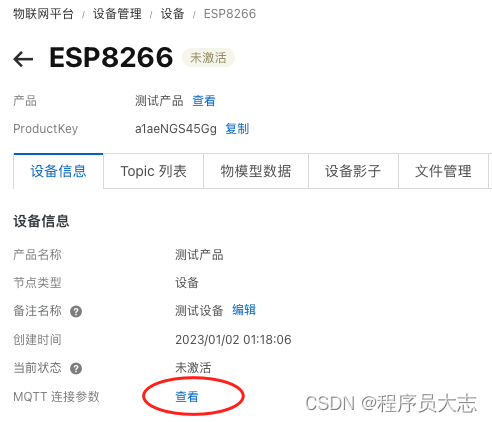

二、连接阿里云MQTT服务器
1、修改PubSubClient.h头文件,否则无法连接阿里云MQTT服务器
将MQTT_MAX_PACKET_SIZE的值改为1024
将MQTT_KEEPALIVE的值改为65

2、代码解析
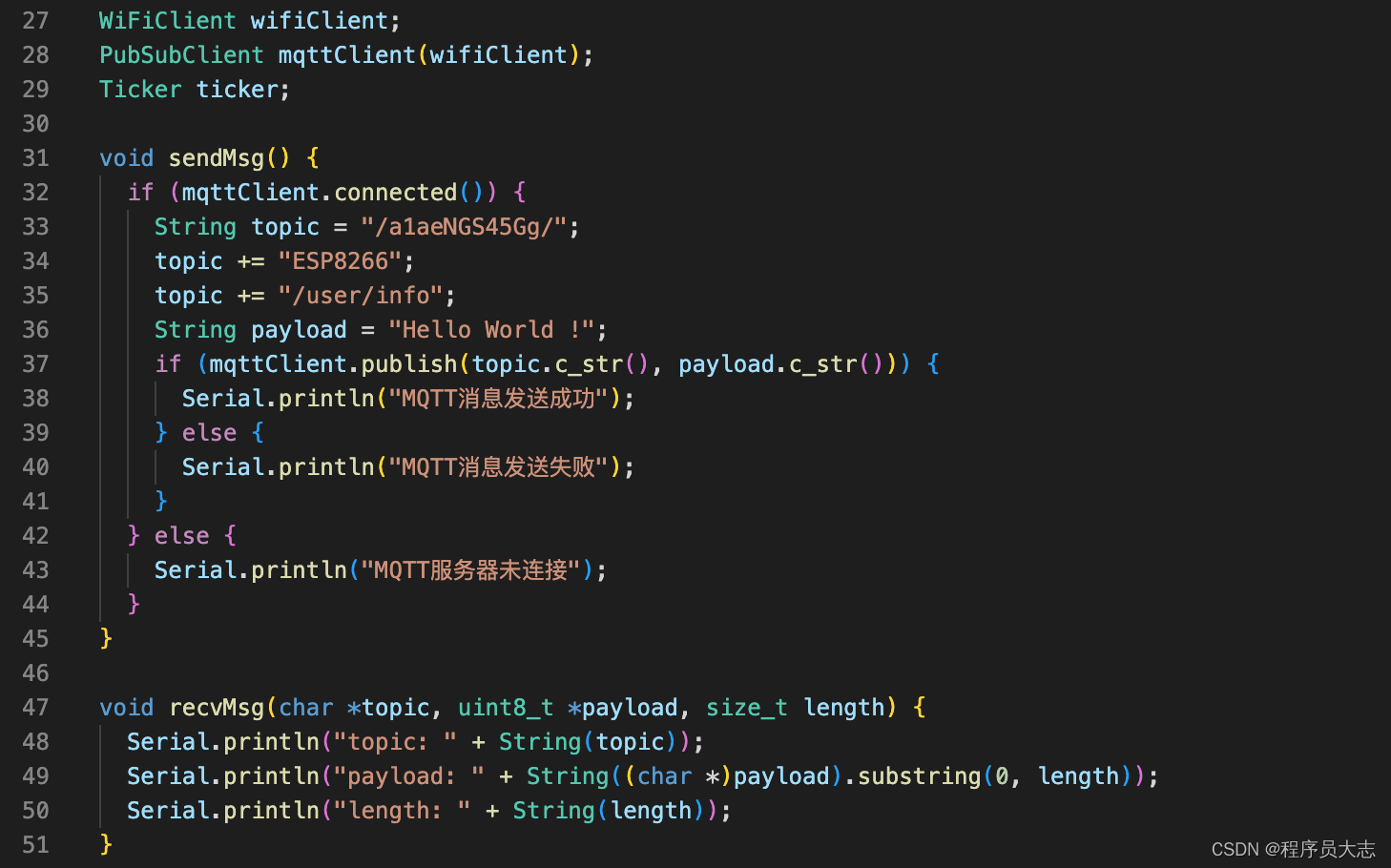
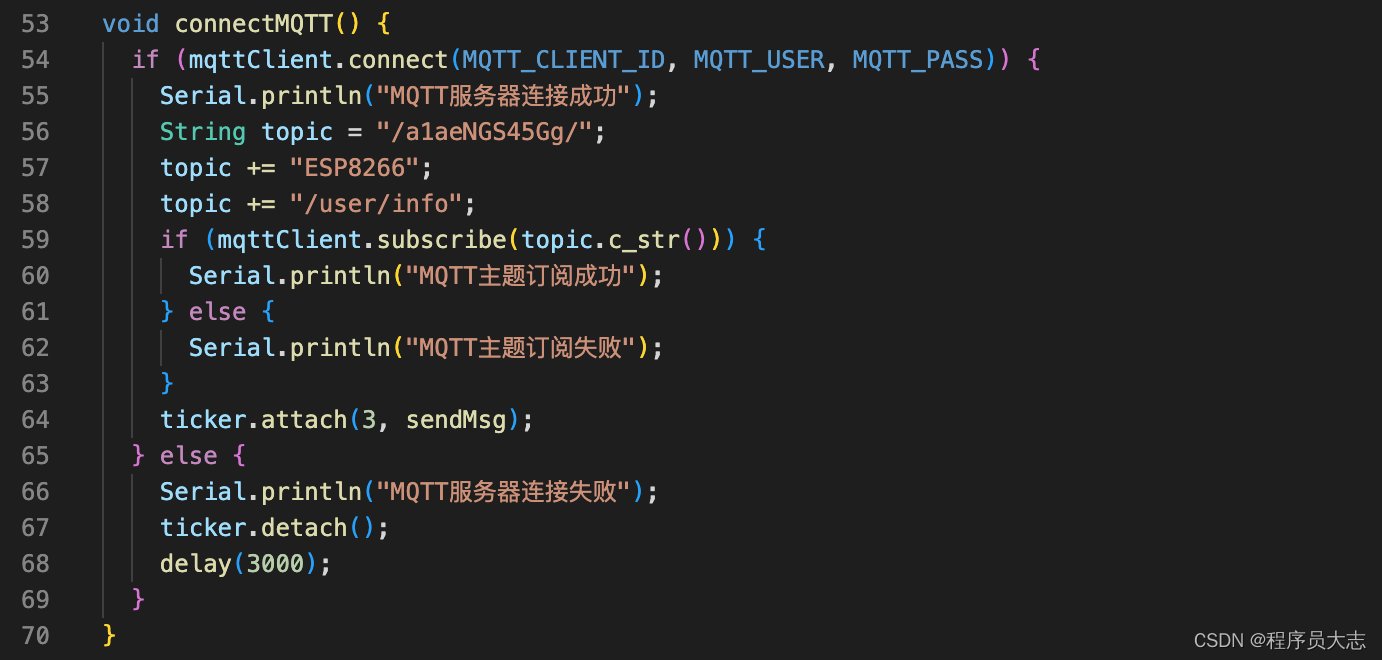
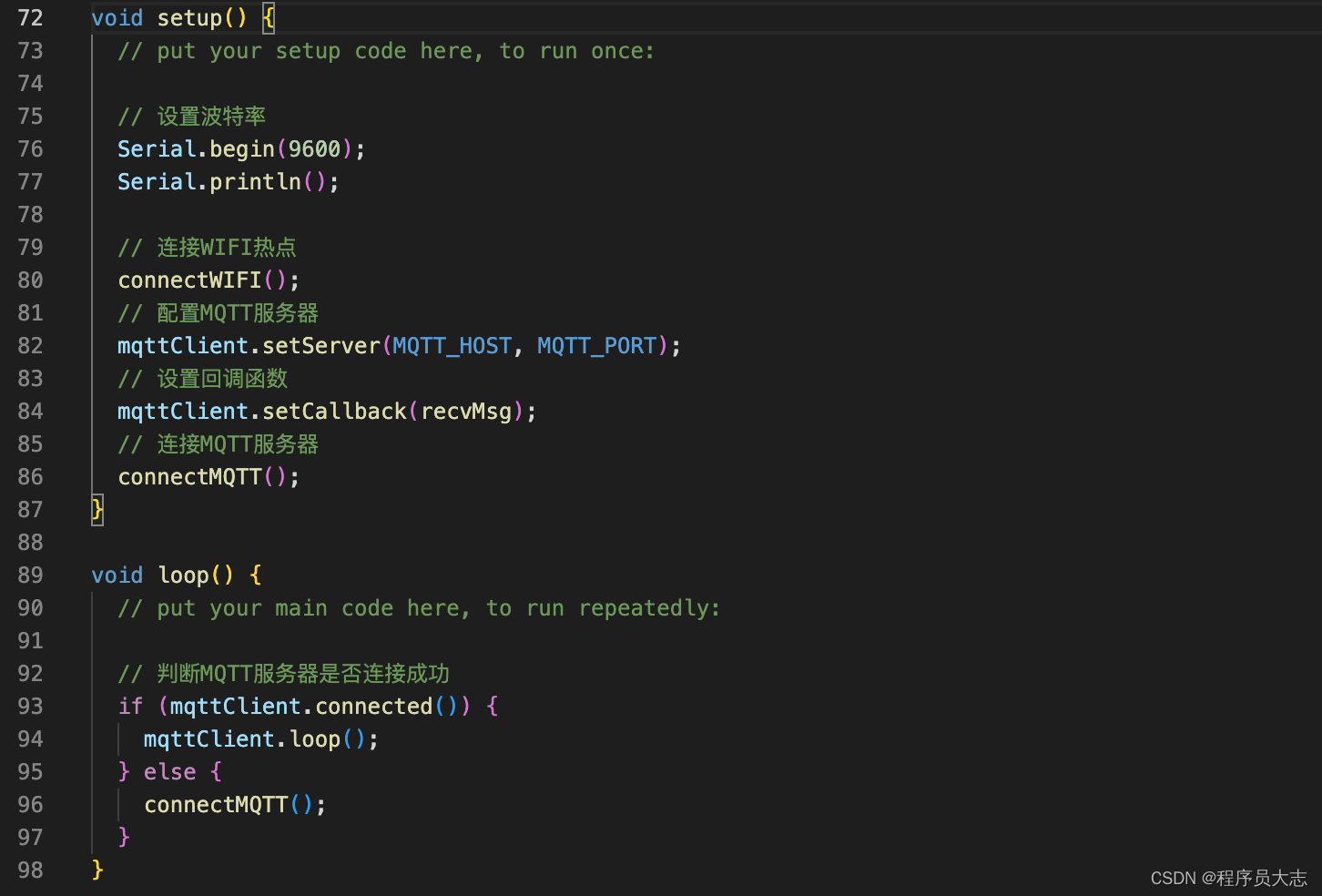
第27行:创建WIFI客户端
第28行:创建MQTT客户端
第29行:创建任务对象
第30行:定义MQTT消息发送函数
第32行:发送消息前先判断MQTT服务器是否连接成功
第37行:发送MQTT消息
第47行:定义MQTT消息接收函数
第53行:定义MQTT服务器连接函数
第54行:请求连接MQTT服务器
第59行:订阅MQTT主题
第64行:开始定时任务,每隔三秒发送一条MQTT消息
第67行:结束定时任务
第82行:设置MQTT服务器主机地址和端口号
第84行:设置MQTT消息接收回调函数
第94行:保持MQTT客户端心跳,否则会连接中断
三、测试效果
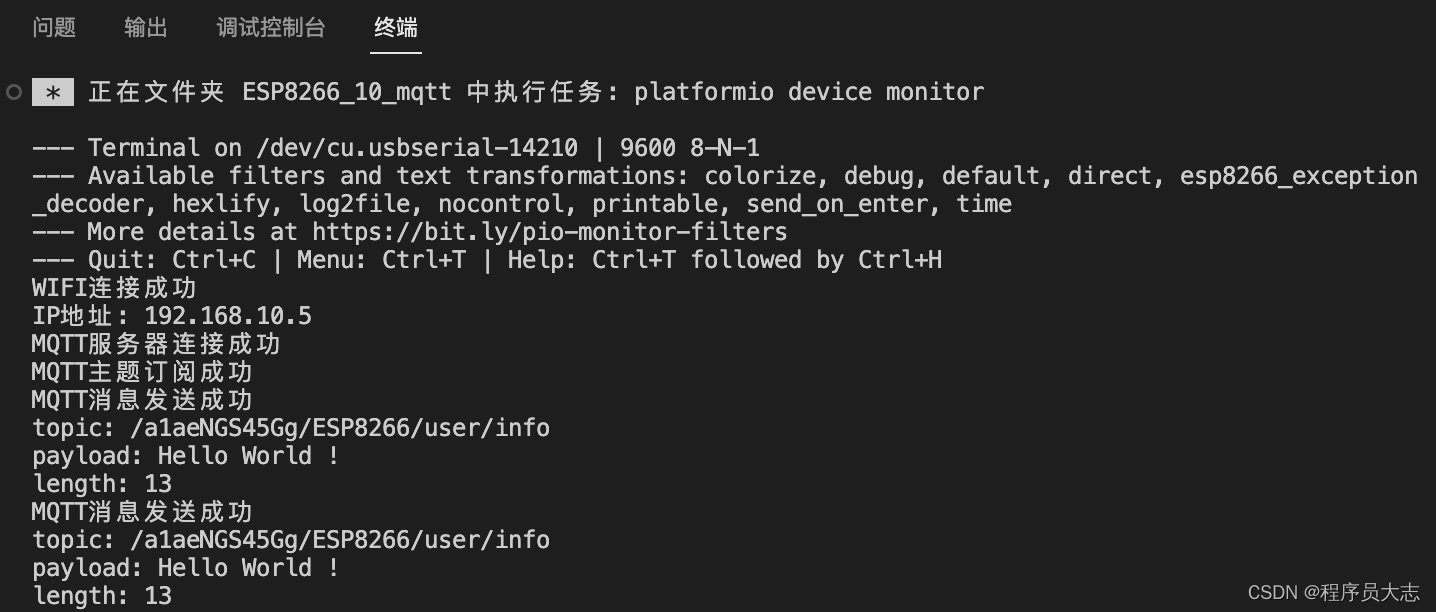
四、完整代码
#include <Arduino.h>
#include <ESP8266WiFi.h>
#include <Ticker.h>
#include "../lib/pubsubclient/src/PubSubClient.h"
#define WIFI_SSID "WWW"
#define WIFI_PASS "00000000"
#define MQTT_HOST "MQTT服务器地址"
#define MQTT_PORT 1883
#define MQTT_CLIENT_ID "MQTT客户端名称"
#define MQTT_USER "MQTT用户名"
#define MQTT_PASS "MQTT登录密码"
void connectWIFI() {
// 连接WIFI热点
WiFi.begin(WIFI_SSID, WIFI_PASS);
int retryCount = 1;
while (WiFi.status() != WL_CONNECTED) {
Serial.println("重试次数: " + String(retryCount));
retryCount++;
delay(1000);
}
Serial.println("WIFI连接成功");
Serial.println("IP地址: " + WiFi.localIP().toString());
}
WiFiClient wifiClient;
PubSubClient mqttClient(wifiClient);
Ticker ticker;
void sendMsg() {
if (mqttClient.connected()) {
String topic = "/a1aeNGS45Gg/";
topic += "ESP8266";
topic += "/user/info";
String payload = "Hello World !";
if (mqttClient.publish(topic.c_str(), payload.c_str())) {
Serial.println("MQTT消息发送成功");
} else {
Serial.println("MQTT消息发送失败");
}
} else {
Serial.println("MQTT服务器未连接");
}
}
void recvMsg(char *topic, uint8_t *payload, size_t length) {
Serial.println("topic: " + String(topic));
Serial.println("payload: " + String((char *)payload).substring(0, length));
Serial.println("length: " + String(length));
}
void connectMQTT() {
if (mqttClient.connect(MQTT_CLIENT_ID, MQTT_USER, MQTT_PASS)) {
Serial.println("MQTT服务器连接成功");
String topic = "/a1aeNGS45Gg/";
topic += "ESP8266";
topic += "/user/info";
if (mqttClient.subscribe(topic.c_str())) {
Serial.println("MQTT主题订阅成功");
} else {
Serial.println("MQTT主题订阅失败");
}
ticker.attach(3, sendMsg);
} else {
Serial.println("MQTT服务器连接失败");
ticker.detach();
delay(3000);
}
}
void setup() {
// put your setup code here, to run once:
// 设置波特率
Serial.begin(9600);
Serial.println();
// 连接WIFI热点
connectWIFI();
// 配置MQTT服务器
mqttClient.setServer(MQTT_HOST, MQTT_PORT);
// 设置回调函数
mqttClient.setCallback(recvMsg);
// 连接MQTT服务器
connectMQTT();
}
void loop() {
// put your main code here, to run repeatedly:
// 判断MQTT服务器是否连接成功
if (mqttClient.connected()) {
mqttClient.loop();
} else {
connectMQTT();
}
}
版权归原作者 程序员大志 所有, 如有侵权,请联系我们删除。